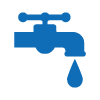| Lead | Ministry of Geology, Mines & Water | |
| Co-lead | UNICEF | |
| Website | Vanuatu WASH cluster website | |
As a Lead Agency, the Department of Geology, Mines and Water Resources in accountable for the facilitation and performance of the National WASH Cluster. The Lead Agency is ther to ensure that:
- Key Partners are included in the work of the Cluster
- There is appropriate coordination within the Cluster and with the other National Clusters and other national and international agencies.
- Any cross-cutting issues are addressed.
- There is effective needs assessment and analysis.
- Adequate contingency and preparedness planning is carried out
- Appropriate standards are in place together with necessary arrangements for monitoring and reporting.
- There is suitable advocacy for the objectives and activities of the Cluster
- Arrangements are in place for any necessary resource mobilisation, and
- Appropriate training and capacity building is carried out to ensure that Cluster activities are well-informed and relevant.
- There is continuity of the Cluster's ability to effectively respond through regular meetings, exchange of information and reporting to all.
The purpose of the Vanuatu National Water, sanitation and Hygiene (WASH) Sector is to ensure the adequacy, coherence and effectiveness of overall humanitarian outcomes by mobilising all stakeholders who are working for the disaster management preparedness, response and recovery and the WASH sector.
The objectives of the Vanuatu WASH Cluster include:
- reduction in morbidity and morality cases due to WASH-related diseases
- Restoration of nomalcy in the lives of affected populations by providing safe access to and ensuring use of water, sanitation and hygience in emergency situations in collaboration with Partners;
- Planning and implementation of proportionate, appropriate and timely WASH responses in humanitarian crisis situations which will address both the immediate needs of the affected populations as well as planning for future needs of the affected populations as well as planning for future needs and improved disaster resiliences;
- Facilitate effective sharing of the information amongst agencies and organizations, including local organizations and local government partners involved in WASH response efforts, preparedness and recovery;
- Ensure adequate WASH contingency and preparedness planning;
- Ensure coordination of the emergency WASH programmes and activities amongst the partners engaged in emergency response including non-members abd local partners;
- Address disruption in the provision of existing governement services during emergencies and liase accordingly with governemet partners;
- Ensure that early recovery planning as well as prevention and risk reduction concerns are addressed and incorporated where possibles at all stages of emergency planning and response; and
- Liase and coordinate with other Clusters as required.

